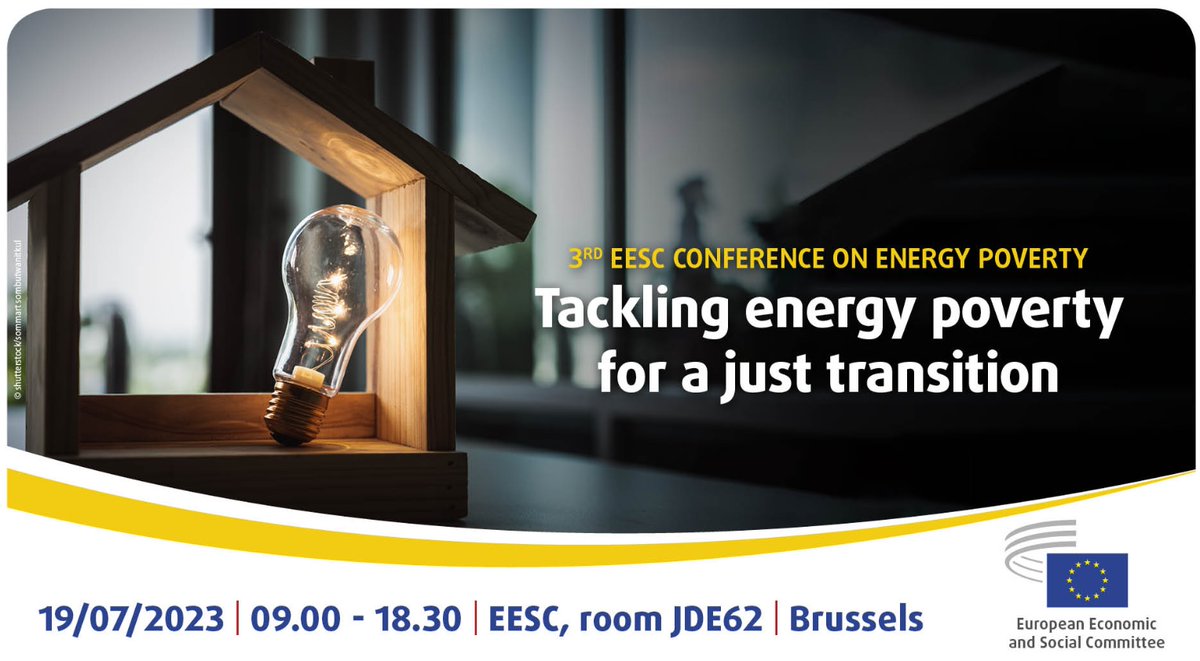
After the successful editions held in 2021 and 2022, on July 19 2023, the European Economic and Social Committee (EESC) hosted the 3rd annual conference on energy poverty. This year’s edition, titled “Tackling energy poverty for a just transition” also explored effective strategies for combating energy poverty amidst an unprecedented energy crisis exacerbated by the ongoing war in Ukraine, as the situation has further intensified the vulnerability of citizens at risk of energy poverty, necessitating urgent attention and comprehensive solutions.
About the conference
The conference serves as a platform for analysing current measures and reviewing recommendations from previous editions, with the objective of developing actionable suggestions for the future. Additionally, it seeks to foster dialogue and collaboration between civil society organizations and various levels of governance, facilitating the exchange of ideas and best practices.
This edition included an examination of the REPowerEU Plan, the primary European policy addressing price volatility, affordable energy supply, and a well-functioning energy market. Discussions focused on evaluating the plan’s effectiveness in tackling energy poverty in the medium to long term.
Furthermore, during the afternoon session the Energy Poverty Advisory Hub (EPAH) presented an overview of energy poverty levels, challenges, and policies in Croatia, Hungary, Ireland, Italy, Poland, Portugal, and Spain. This served as an opportunity to share insights from national discussions, highlighting challenges faced by vulnerable communities and the policies and measures in place to tackle energy poverty.
What happened at the conference
The conference was organised in 4 panels, each dedicated to a specific dimension of energy poverty:
- The first panel addressed the REPowerEU Plan, assessing its potential to combat energy poverty and promote the shift to renewables. Panelists explored the role of local energy communities and provided recommendations for future measures.
- The second panel addressed the importance of affordable and energy-efficient housing in alleviating fuel poverty and reducing household housing stress. It shed light on the challenges related to housing renovation, escalating costs, and the need for additional funding to sustain energy-efficient improvements.
- The third panel investigated the interconnection between fuel poverty and transport poverty, both stemming from similar causes. Complementary measures aimed at alleviating pressure on vulnerable citizens were explored, emphasizing the importance of accessible and affordable transport options.
- The fourth panel adopted a gender-sensitive approach to energy poverty, recognizing that women are disproportionately affected due to various socio-economic factors. Experts presented recommendations for integrating gender-sensitive policies and addressed the lack of gender-disaggregated data on energy poverty.
The final part of the conference was dedicated to recommendations to stakeholders, policymakers, and relevant authorities, in the hopes that the insights gathered during the event will contribute to shaping future policies and initiatives, propelling Europe towards a more inclusive and sustainable energy future.
With the EESC‘s conference on tackling energy poverty, Europe reaffirms its dedication to addressing this critical issue and paving the way for a just energy transition. By fostering collaboration, analysing effective strategies, and advocating for comprehensive policies, the EU is taking significant strides towards ensuring equitable access to affordable and clean energy for all citizens.
